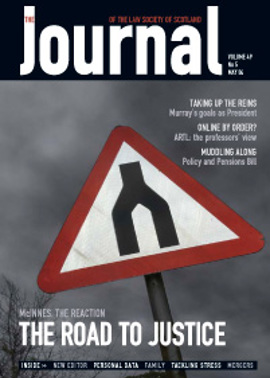Personality rights: a brand new species?
Despite the lack of personality or image rights in UK law, the concept has recently received large amounts of press coverage with Ian Botham’s action against Diageo, Eddie Irvine’s success against Talksport, and more recently Ofcom’s decision supporting David Bedford’s claim against The Number (better known as 118 118) that their use of a 1970s style runner in their advertising campaign was an “improper caricature” of Mr Bedford.
In the USA it is accepted that a person’s name, voice and likeness are protected at law. Similarly, Canada, Germany and France also have accepted the existence of a “personality right”. An individual has the exclusive right to authorise how their name, voice, signature, photograph or likeness may be used. If anyone uses the image without their consent, it is an infringement of the right and may be subject to a penalty.
Success in the fast lane
In UK law however the position is not so clear and celebrities have had to rely on traditional intellectual property law to try and establish their rights. A celebrity can protect their image as a trade mark – Damon Hill and Jacques Villeneuve have been successful. There may be pitfalls however, as it may not be sufficient to prevent all pictures or photos appearing on T-shirts or mugs – such use may be merely decorative and not use as a trade mark. Ironically, the better known a celebrity, the harder it can be to register a trade mark. Recently the Princess of Wales Memorial Fund brought an action based on false advertising and endorsement, trademark dilution and infringement of California’s statutory right of publicity and unfair competition. The action was thrown out and criticised as Diana had no legal right to protect her image in England, so it was unlikely she would have been able to in California. In English law, the only available action would have been passing off, but there would likely have been difficulty in showing the necessary element of confusion.
The Eddie Irvine case has helped to clarify the position in the UK. The judge specifically acknowledged that celebrities exploit their name and image through endorsement of products and services. Talksport had used a manipulated picture of Eddie Irvine holding a Talk Radio radio. Irvine claimed compensation for passing off because it was a false or unauthorised endorsement. To be successful a pursuer would have to prove that:
(1) at the time of the acts complained off he had a significant reputation or goodwill in his personality (meaning that those who rarely or never endorse may find it harder to stop people using their image);
(2) the actions of the defender gave rise to a false message which would be understood by a not insignificant section of the market that the goods had been endorsed by the pursuer; and
(3) as a result of this false belief of endorsement he has suffered damage to reputation and goodwill.
Hurdles facing the runner
Whether David Bedford’s situation will fit that test seems rather doubtful. David Bedford claims he is entitled to compensation because he alleges 118 118 have falsely represented him as endorsing their telephone service. The Ofcom decision relates solely to a breach of the Television Advertising Standards Code and was specifically stated to be without prejudice to any private claim that Mr Bedford may have for passing off. Notably Ofcom refused to order the removal of the adverts, primarily on the basis that Mr Bedford had failed to take action for some six months since first becoming aware of the advertising campaign and he had presented no evidence of actual financial loss. Use of a character on its own is not enough to set up a successful claim of passing off and it may be very difficult for Mr Bedford to satisfy all three elements above. Whether a not insignificant proportion of the public would view the 118 118 advert as demonstrating his endorsement of the service will be key to the case’s success.
Whether Mr Bedford proceeds to litigate following the Ofcom success remains to be seen, but with an increasing number of cases of this type coming to the fore it will only be a matter of time before we have clearer UK case law on the requirements for success in such claims. The lucrative industry of personality product endorsement that now exists in the UK and indeed globally, may mean that UK legal recognition of personality rights as a separate category of IP is inevitable given the inherent difficulties in applying established areas of intellectual property law to a whole new class of claims.
Robert Buchan, Senior Solicitor, and Gill Grassie, Partner, IP & Technology Department, Maclay Murray and Spens
In this issue
- Thank you to a great team
- Justice and independence
- Take the low road
- Pensions crisis, what crisis?
- Whale... or rabbit?
- Blissful union?
- Cracking up
- The big 3
- Personal attention
- Looking forward to retirement?
- Grasping the issues
- Credit balance
- No warrant for refusal
- Holding our breath
- Scottish Solicitors' Discipline Tribunal
- Personality rights: a brand new species?
- Beware of Companies House disclaimers
- Website reviews
- Book reviews
- The new law of real burdens
- Deductions of title
- Waste paper?






